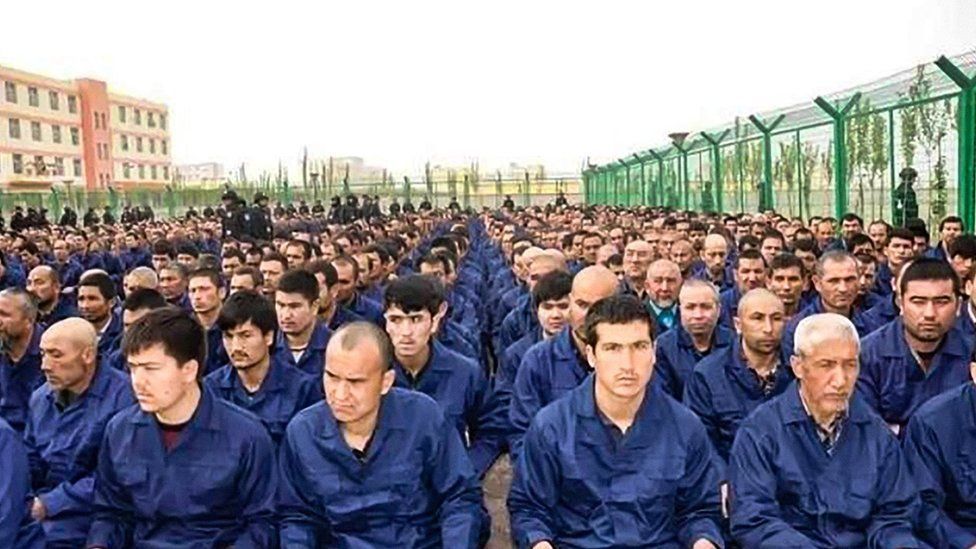Xinjiang polysilicon boycott opens window for OCI
Hanwha Q Cells to join global action to move supply out of Chinese region after reports of forced labor
By Kim Byung-wookPublished : Feb. 15, 2021 - 16:01

Following reports that polysilicon produced in the Chinese region of Xinjiang is linked with forced labor of detained Muslim minorities, solar companies in the US and Europe are seeking to exclude the region from their supply chains, opening a window of opportunity for South Korean firms to gain foothold in the market.
A recent report by the consultancy Horizon Advisory suggests that Xinjiang’s production of polysilicon -- an essential raw material used in manufacturing most solar panels -- has been connected to a broad program of forced labor, with “indicators of forced labor” from companies such as Jinko Solar and some of the largest polysilicon suppliers there.
“Solar Energy Industry Association in the US has been calling for excluding Xinjiang from solar power supply chains as it’s impossible to independently monitor (forced labor) in the region,” said Hyundai Motor Securities analyst Kang Dong-jin.
“The US is asking Europe to show solidarity for the human rights issue in Xinjiang, and the UK has recently responded by signaling a potential trade sanction on China. It’s likely for the US, Europe and their allies to shun solar cells and modules made of Chinese polysilicon in the future.”
Xinjiang produces 40 percent of the world’s polysilicon, with four of the world’s five biggest solar polysilicon factories in the region, according to clean energy research group BloombergNEF. As electricity accounts for about 40 percent of operating costs, Xinjiang has some of the cheapest power in China thanks to an abundance of coal.
Due to mounting criticism, massive Chinese solar manufacturers such as Longi Solar, JA Solar and Jinko Solar last month signed a pledge with other 172 members of the Solar Energy Industry Association to drive out forced labor from their supply chains.
Longi Solar on Feb. 8 signed a long-term supply contract worth 930 billion won ($843.7 million) with Korean polysilicon manufacturer OCI.
OCI, the only Korean chemical company that makes polysilicon, is expected to produce 25,000 metric tons of polysilicon per year at its plant in Malaysia and supply them to Longi Solar for the next three years.
Buoyed by the supply deal, OCI is currently expanding its Malaysia plant to increase the plant’s production capacity to 35,000 tons by next year from the current 30,000 tons.
While OCI is taking a full advantage of the situation as an alternative polysilicon supplier, Hanwha Q Cells, the world’s No.6 solar company who has a solar cell and panel production base in the US, has decided to wait for further instructions.
“Some 175 SEIA members joined the pledge to oppose the forced labor of minorities including Uighurs in Xinjiang. They are waiting for SEIA’s specific ethical guidelines on how to take actions on this issue,” an industry official said.
In response to the boycott movements, China-based polysilicon manufacturers are making efforts to diversify their production locations.
Xinte, which runs an 80,000-ton polysilicon factory in Urumqi, Xinjiang, announced Feb. 9 that it would build a 200,000-ton plant in Baotou, Inner Mongolia. The factory, slated to open as early as late 2022, is set to become the world’s single largest polysilicon production complex.
For the operation of the Baotou plant, which will require 10 gigawatts of electricity per year, Xinte will source the electricity from solar and wind power plants instead of coal-fired power plants as an apparent effort to avoid criticism from Western countries.
By Kim Byung-wook (kbw@heraldcorp.com)







![[Graphic News] More Koreans say they plan long-distance trips this year](http://res.heraldm.com/phpwas/restmb_idxmake.php?idx=644&simg=/content/image/2024/04/17/20240417050828_0.gif&u=)
![[KH Explains] Hyundai's full hybrid edge to pay off amid slow transition to pure EVs](http://res.heraldm.com/phpwas/restmb_idxmake.php?idx=644&simg=/content/image/2024/04/18/20240418050645_0.jpg&u=20240419100350)





![[From the Scene] Monks, Buddhists hail return of remains of Buddhas](http://res.heraldm.com/phpwas/restmb_idxmake.php?idx=652&simg=/content/image/2024/04/19/20240419050617_0.jpg&u=20240419175937)

![[KH Explains] Hyundai's full hybrid edge to pay off amid slow transition to pure EVs](http://res.heraldm.com/phpwas/restmb_idxmake.php?idx=652&simg=/content/image/2024/04/18/20240418050645_0.jpg&u=20240419100350)

![[Today’s K-pop] Illit drops debut single remix](http://res.heraldm.com/phpwas/restmb_idxmake.php?idx=642&simg=/content/image/2024/04/19/20240419050612_0.jpg&u=)